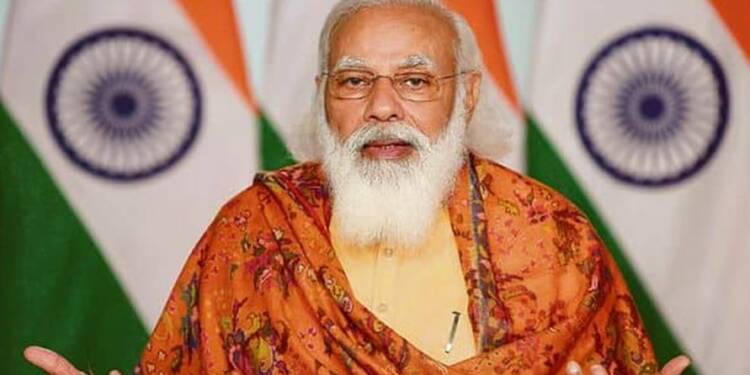In a historic moment for India’s political economy, PM Modi has not only come out in support of India’s private sector but also slammed the people who abuse the private players of the country.
“To use improper words against the private sector may have got votes for a few people in the past but those times are gone. The culture of abusing the private sector is not acceptable any longer. We cannot keep insulting our youth like this,” said Prime Minister Modi.
https://twitter.com/ItsShubhangi/status/1359526247844376577?s=20
PM Modi also said that nothing can be achieved by handing over the country to babus (bureaucrats). Just because someone is an IAS officer, he is being tasked to run everything be it a chemical factory or an airline, he argued, taking a potshot at the inefficiency of IAS run public sector companies. “If our babus belong to the country so do our youngsters,” added Prime Minister Modi.
This is the first time an Indian leader as tall as Prime Minister has made an unapologetic endorsement for the private sector. If we compare PM Modi’s stance on the private sector with other tall leaders of the country like Mohandas Gandhi and Jawaharlal Nehru, this is a radical departure.
For example, Mahatma Gandhi loved businesspeople and had a very good relationship with industrialists like Jamnalal Bajaj and Ghanshyam Das Birla. He even used to live in the houses built by industrialist families and got the industrialists to finance the Congress party. However, Gandhi does not want “too big to fail” companies and wanted the government to support the MSME sector. His typical “Bharat gao me basta hai (India lives in its villages)” and the villages should function as an independent unit.
On the other hand, Jawaharlal Nehru hated the businessman and private sector but loved big businesses (in the public sector). So, India had too-big-to-fail public sector companies that were called Maharatna by the Indian government. The inefficient public sector companies, led by babus, have a towering presence in the Indian economy in the second half of the 20th century, and, even today, there are many inefficient public sector companies in the country sustaining on taxpayer’s money.
Given the success of the private sector in the creation of wealth since the liberalization of 1991, Narendra Modi took a radically different approach towards the political economy after he became the chief minister of Gujarat.
After Modi came to power in the center in 2014, he took many steps that could qualify as socialist like demonetization or Pradhan Mantri Jan Dhan Yojna. Moreover, in most of the sectors, the government was rejuvenating the public sector to make it more efficient instead of going for privatization.
But, in the sector term, the government has unapologetically celebrated the capacity of the private sector to create wealth right from the first economic survey. The Economic Survey 2020 highlighted the celebration of Wealth Creation and outlined the philosophy of this government in the very first paragraph of the first chapter, which reads, “For more than three-fourths of known economic history, India has been the dominant economic power globally. Such dominance manifested by design. During much of India’s economic dominance, the economy relied on the invisible hand of the market for wealth creation with the support of the hand of trust. Specifically, the invisible hand of markets, as reflected in openness in economic transactions, was combined with the hand of trust by appealing to ethical and philosophical dimensions.”
The recognition of the power of the market (private sector) in wealth creation was visible even in AtmaNirbhar Bharat packages as well as the Union budget of this year, in which, the government said that PSUs will exist only in the strategic sectors and the rest will be privatized. The government also said that it will incentivize and convince the state governments to go for privatization.
“To use improper words against the private sector may have got votes for a few people in the past but those times are gone. The culture of abusing the private sector is not acceptable any longer. We cannot keep insulting our youth like this,” said the Prime Minister in parliament in order to ensure that the message reaches the opposition and the vested interests that demonize the private sector will not be tolerated.
This shows that New India will celebrate the wealth creators and business leaders and the days of seeing them with the lens of suspicion and “profit” being a bad word are over.

























